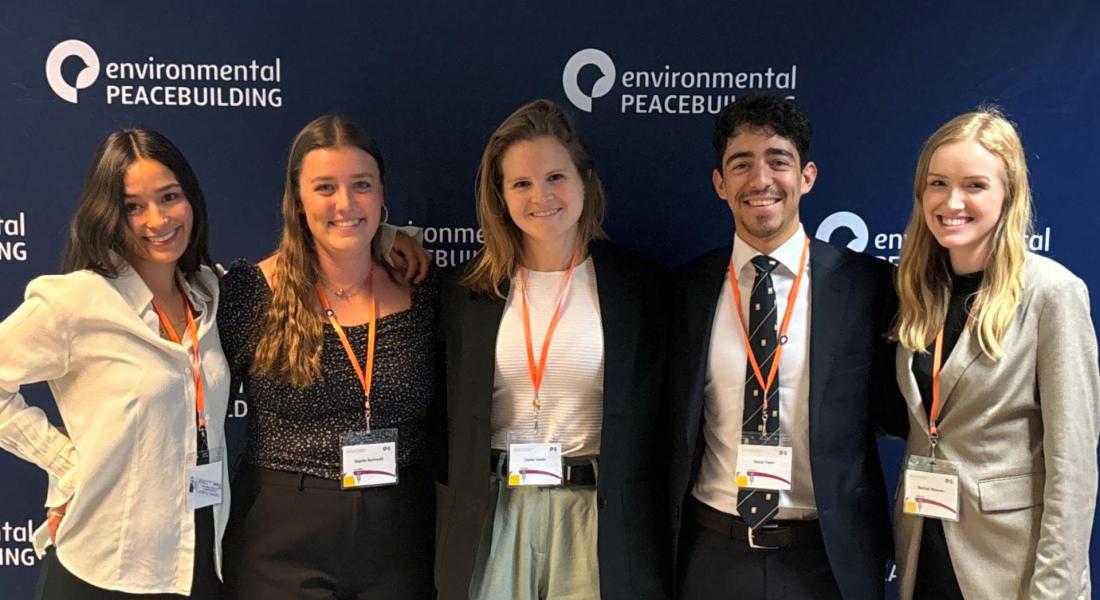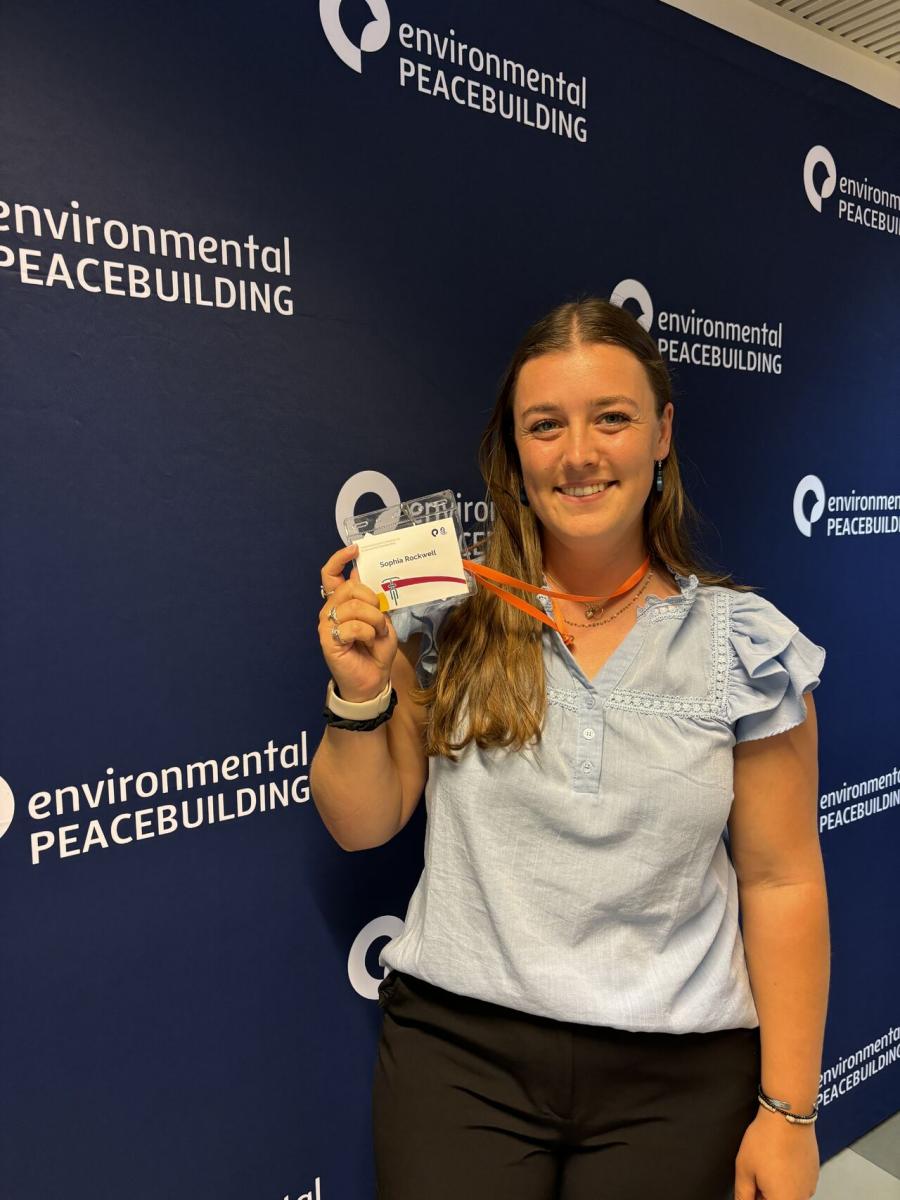
What role does the environment have in current and future conversations about how to promote, create, and maintain international peace through research and government initiatives?
This question was at the forefront of conversation at the Third International Conference on Environmental Peacebuilding hosted by the Environmental Peacebuilding Association (EnPAx) and Leiden University's Grotius Centre in The Hague this June. With 5 key themes - Climate Change; Water; Peace, Justice, and Accountability; Natural Resources and Conservation; and Data and Digital Technologies - as the Conference framework, over 400 international participants gathered in The Hague to present their research, showcase art, and develop the community of practitioners within this discipline.
With the generous support of the Kellogg and Nanovic Institutes, I had the opportunity to attend and work at the Conference as a culmination of my year-long internship with EnPAx as a research intern and the conference communications manager. The Environmental Peacebuilding Association, dedicated to growing the community of professionals focused on developing environmental peacebuilding practices and knowledge bases across professional disciplines, has been a wonderful exposure to the variety of post-graduate work that I can pursue within the overlapping spheres of environmental policy, research, community programming, and governance practices. It was empowering to connect my research internship and my on-campus work to a professional environment rooted in collaboration and the exchange of ideas on such an international and interdisciplinary level.
 Working at the Conference, especially in such a hands-on role within communications, consisted of early morning setups, near-constant technology support for virtual participants, managing Q&A panels, and capturing moments from the Conference to update and share on our various outreach platforms. As a member of the conference organizing team, I grew a deeper appreciation for the hard work, dedication, and intention that contributed to the success of international and interdisciplinary conferences. It was also in this working position that I was able to connect with many of the presenters about their work, attend a variety of panels and discussions, and foster professional relationships with the other Conference organizers.
Working at the Conference, especially in such a hands-on role within communications, consisted of early morning setups, near-constant technology support for virtual participants, managing Q&A panels, and capturing moments from the Conference to update and share on our various outreach platforms. As a member of the conference organizing team, I grew a deeper appreciation for the hard work, dedication, and intention that contributed to the success of international and interdisciplinary conferences. It was also in this working position that I was able to connect with many of the presenters about their work, attend a variety of panels and discussions, and foster professional relationships with the other Conference organizers.
I had the privilege of touring the International Criminal Court as part of the Conference, which included sitting in on a closed hearing of one of the current cases from Central African Republic II for an individual on trial for war crimes and crimes against humanities. The Conference participants and the ICC attorney who met with us had a fruitful Q&A session on the possibility of adding ecocide as a future crime that could be tried at the ICC alongside war crimes, crimes against humanity, genocide, and crimes of aggression. Being able to have firsthand experience visiting this institution tasked with prosecuting the most severe crimes was a once in a lifetime opportunity, particularly as someone who is interested in attending law school in the future for environmental policy work.
Additionally, I was able to attend workshop sessions on my specific areas of research interest - water rights, land management, and gender dynamics - all of which were developed through my involvement with Kellogg programs. My previous Kellogg Developing Research projects with Professors Roger Alford and Maira Hayat have allowed me to dive into the worlds of domestic public land management and international water treaties. My time last summer in Zambia through the Pre-ETW program has provided me with experience in gender equity in education. My previous and continued work within Kellogg was enriched throughout my week at the Conference, especially in such a unique international hub of peace and justice as The Hague.
My work at EnPAx has developed my understanding of the importance of including the environment as an influential actor within research, governance, and community-building practices focused on peacebuilding. Attending the Third International Conference on Environmental Peacebuilding further solidified my belief that it is through the intersections of scientific research, community engagement, and just governance that we can mitigate the environmental damages on communities and ecosystems that arise throughout conflict zones amidst the current climate crisis. I have a renewed hope for the future of environmental peacebuilding as a discipline due to the continued dedication and inspiring work shared over the week at The Hague, and I look forward to contributing to this community with my future endeavors.





